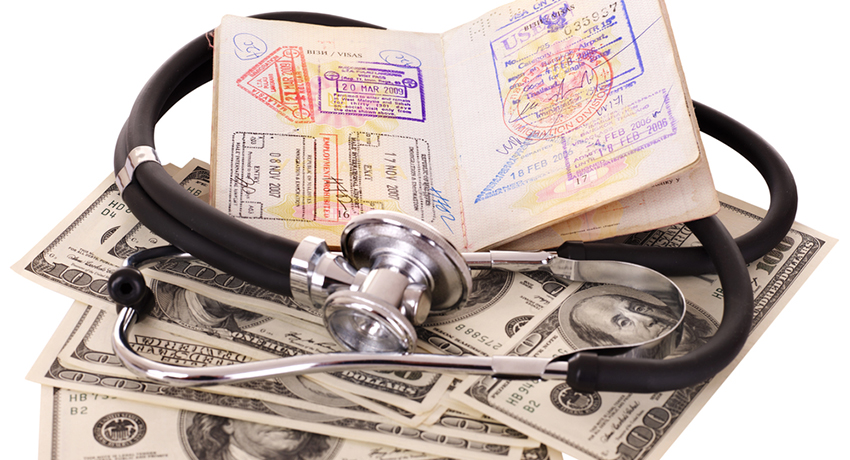Warning Issued for People Traveling for Cosmetic Surgery

Passport, money, and stethoscope image via shutterstock
You’d think that the U.S. would be a place that people travel to in order to find quality surgery options and procedures. A McKinsey and Co. report found that 60,000 to 85,000 medical tourists traveled to the United States in 2008 for procedures. But, it turns out, a whole lot more people actually left the country for surgery. An estimated 750,000 American medical tourists traveled from the U.S. to other countries looking for lower cost “Western-accredited” medical facilities, which was an increase of 250,000 from the previous year.
Dr. Sam Lin, a plastic surgeon at Beth Israel Deaconess Medical Center says that there are a few reasons for this, but one standout is that there are procedures offered elsewhere in the world that are not yet approved in the U.S. A report by the Deloitte Center for Health Solutions projected that medical tourism from the U.S. would increase tenfold over the next decade.
The Boston Public Health Commission (BPHC) recently issued a health advisory for people to take caution when traveling abroad for surgery due to several reports of severe infections in patients following cosmetic surgery in the Dominican Republic.
A number of people who traveled to the Dominican Republic in the summer for cosmetic surgery are having serious infections, and some of these have been confirmed to be caused by the bacteria Mycobacterium abscessus. This germ can be spread through contaminated medical equipment, medical supplies, or poor surgical techniques. Infection can cause severe pain and swelling, and often does not show up until several weeks after surgery.
In addition to procedures offered, another reason people travel for surgery is the price. Plastic surgery in South America is less expensive than here in the States. In fact, the average cost of a tummy-tuck, or abdominoplasty, in the U.S. is $9,750. In South America, it’s only $3,500. Here in the Boston area, the price ranges from $7,660 to $16,400.
Lin says that medical tourism carries risk. For example, the quality of care following surgery can vary significantly, and different countries have infectious diseases that we may not see here in the U.S. Exposure to these infections without having built up a natural immunity can be dangerous, especially for individuals with weaker immune systems. Plus, traveling long distances following surgery can raise the incidence of complications, and long flights can cause blood clots that travel to the lungs and are potentially fatal, he says.


